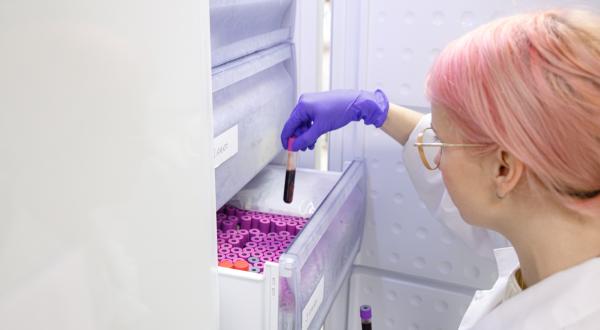Complying with COVID-19 Restrictions - Sacrifice or Common Sense?
Professor Ludmila Vīksna, Head of the Rīga Stradiņš University (RSU) Department of Infectology, draws employees' attention to the fact that the decisive factor in limiting COVID-19 is each individual's behavior. The professor calls staff and students to take responsibility for affecting the spread of the infection before it has taken over our lives completely, and urges people to not consider following these recommendations as a sacrifice.
Dear colleagues,
I would like to draw your attention to some facts that show that our own behaviour is crucial in preventing the spread of COVID-19.
It is clear that:
• the virus causing COVID-19 has not changed significantly since the beginning of the year;
• transmission of COVID-19 has not changed: it occurs primarily via airborne transmission, that is, by respiratory droplets;
• respiratory droplet transmission practically occurs within a range of 2 meters;
• the autumn spike in COVID-19 cases was caused by the Latvian population’s/visitors’ negligent attitude of towards epidemiological safety measures.
From this, it appears that:
• we can stop, or significantly limit the spread of the infection ourselves by reducing or limiting contact with others, thus preventing the virus from transmitting between people;
• currently, each and every one of us can have an impact on the spread of the virus and a lot depends on us.
Therefore, I ask the following:
Let’s seize the opportunity and take responsibility for limiting the spread of the infection while it has not taken over our lives completely. Let’s not think that we are making a sacrifice by complying with the restrictions.
As Christmas is approaching, let us think good thoughts and do small, but important deeds which are not hard to execute.
Personal precautions you can take:
A. In your private life -
- reconsider your daily activities and shorten them by half;
- specific suggestions:
- go grocery shopping less frequently, use leftovers for your meals;
- exercise at home instead of a gym;
- go to the hairdresser less frequently;
- do not meet your friends in person, talk on the phone;
- buy things for yourself, your children or parents online;
- do not use tailors, but rather wear something you already have;
- do not attend choir, or dance practice, or other hobbies and clubs;
- do not pay your friends of family unexpected visits;
- respect each other’s personal space even at home.
B. In your professional life -
- if you feel sick or are unwell, do not go to work (do not leave your home, invite your friends to come over, etc.);
- try to avoid contact at work if such contact is not necessary to perform your work duties;
- always use personal protective equipment correctly;
- give preference to contactless communication;
- do not communicate, and ignore people who do not comply with the requirements to use personal protective equipment;
- act and behave as if everyone around you is infected (without exception).
Inconveniences like these are a small price to pay compared to the expected outcome which is a life without COVID-19.
Dear colleagues,
All epidemics or pandemics end sooner or later. It is important not to become the victims of the virus or to infect others.
Let’s follow common sense and stay strong, at least until New Years.
Take care of yourself and others will take care of you!





